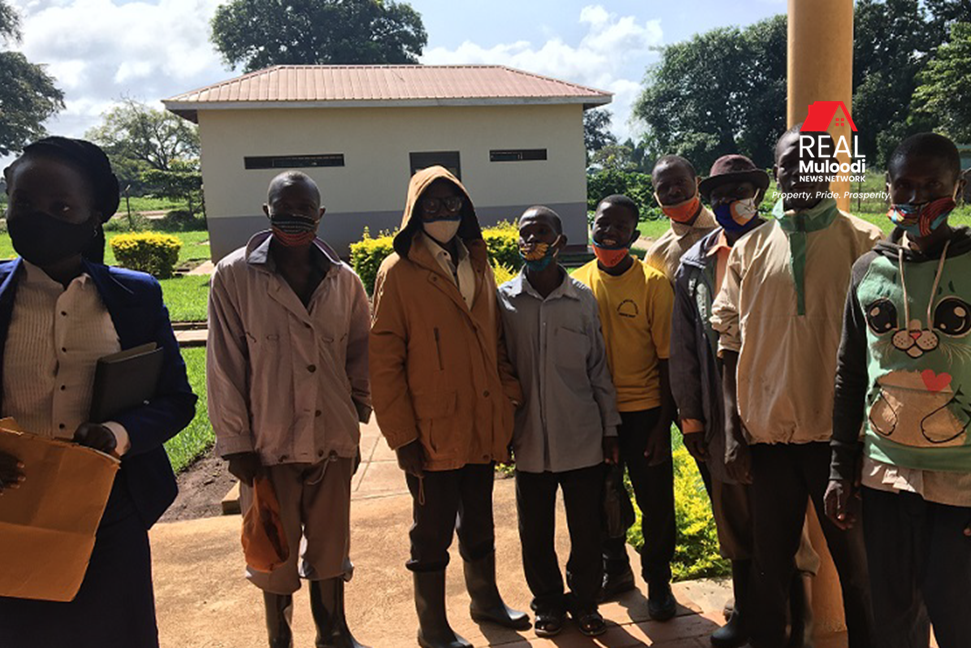UGANDA, Kiryandongo | Real Muloodi News | In the heart of Kiryandongo, a district marred by escalating land conflicts, residents and leaders find themselves entangled in a web of accusations and counterclaims.
The issue at hand revolves around the residents accusing their leaders of complicity in land grabbing, while leaders contend that the residents often settle on public land, exacerbating the challenges.
The discontent among Kiryandongo residents reached a boiling point during a dialogue organised by Witness Radio at the district headquarters.
Accusations flew as Joseph Walikura, representing evictees from various ranches, expressed disappointment in leaders allegedly turning a blind eye to the plight of ordinary citizens.
According to Walikura, leaders, security forces, and technocrats collude to compromise the residents, leading to the marginalisation of the local population.
Walikura painted a grim picture of over 40,000 households evicted from different ranches in the district since 2017.
He emphasised the adverse impact on food production, with the ordinary citizens left unprotected and unable to engage in agricultural activities
Amid the struggle for land rights, the displaced residents now grapple with dire living conditions, scattered among neighbours and relatives.
Pastor Job Olara, echoing the sentiments of many, accused the leaders of corruption, compromise, and a reluctance to defend the people’s property rights.
He lamented the failure of office-bearers to address land issues effectively, attributing the rampant land grabbing to a lack of leadership and courage.
Caroline Nyamaizi, a resident and speaker at Kiryandongo town council, criticised the courts for allegedly favouring the wealthy in land disputes, leaving the poor without recourse.
Nyamaizi also pointed fingers at district leaders and technocrats, accusing them of prioritising personal interests over the welfare of the ordinary citizen.
However, in response to these accusations, Doreen Chandia, the district physical planner, urged residents to distinguish between public and customary land.
She contended that some people settle on public land, and when it is allocated to investors by the Uganda Land Commission (ULC), blame is unjustly shifted to district leaders.
David Kyategeka, the secretary to the land board, acknowledged challenges in sensitising people about their land rights due to budget constraints.
He highlighted the issue of idle land purchased by individuals, tempting others to encroach, and the lack of adequate funds for public awareness campaigns.
Kiryandongo District LC5 chairperson Edith Aliguma vehemently dismissed accusations against leaders and technocrats, asserting that the complaining individuals were evicted from government land allocated to investors.
Aliguma urged residents to refrain from settling on public land, especially in ranches, emphasising that compensation had been provided to those affected.
The dialogue also brought to light historical injustices in the Bunyoro region, as noted by Kiryandongo Deputy Resident District Commissioner Jonathan Akweteireho.
He stressed the need to address historical injustices caused by colonialists, particularly the establishment of ranches without granting titles to occupants.
Akweteireho acknowledged the overwhelming challenges faced by various offices in resolving land disputes and underscored the importance of creating awareness of obtaining letters of administration.
He also highlighted the rise of squatters as a complicating factor, urging the need to sensitise them on land rights.
Geoffrey Ssebagala Wokulira, the country director of Witness Radio, outlined Kiryandongo as a hotspot for land grabbers, calling for a structured framework to mitigate conflicts.
He emphasised the necessity for a by-law on evictions to provide a comprehensive solution to the land issues in the district.
As the dialogue unfolded, it became evident that the land quagmire in Kiryandongo is a multifaceted challenge, intertwining historical injustices, bureaucratic hurdles, and a lack of awareness.
Residents yearn for a resolution that safeguards their land rights and ensures equitable access to resources, while leaders grapple with the complexities of managing competing interests and historical legacies.
The road ahead requires collaborative efforts, transparency, and a commitment to justice to unravel the intricate web of land issues in Kiryandongo.
READ MORE LIKE THIS:
Escalating Kiryandongo Land Disputes Affect Lives and Education
Fraudulent Sale of Kiryandongo Govt Land Leaves 1000 Homes Dispossessed



